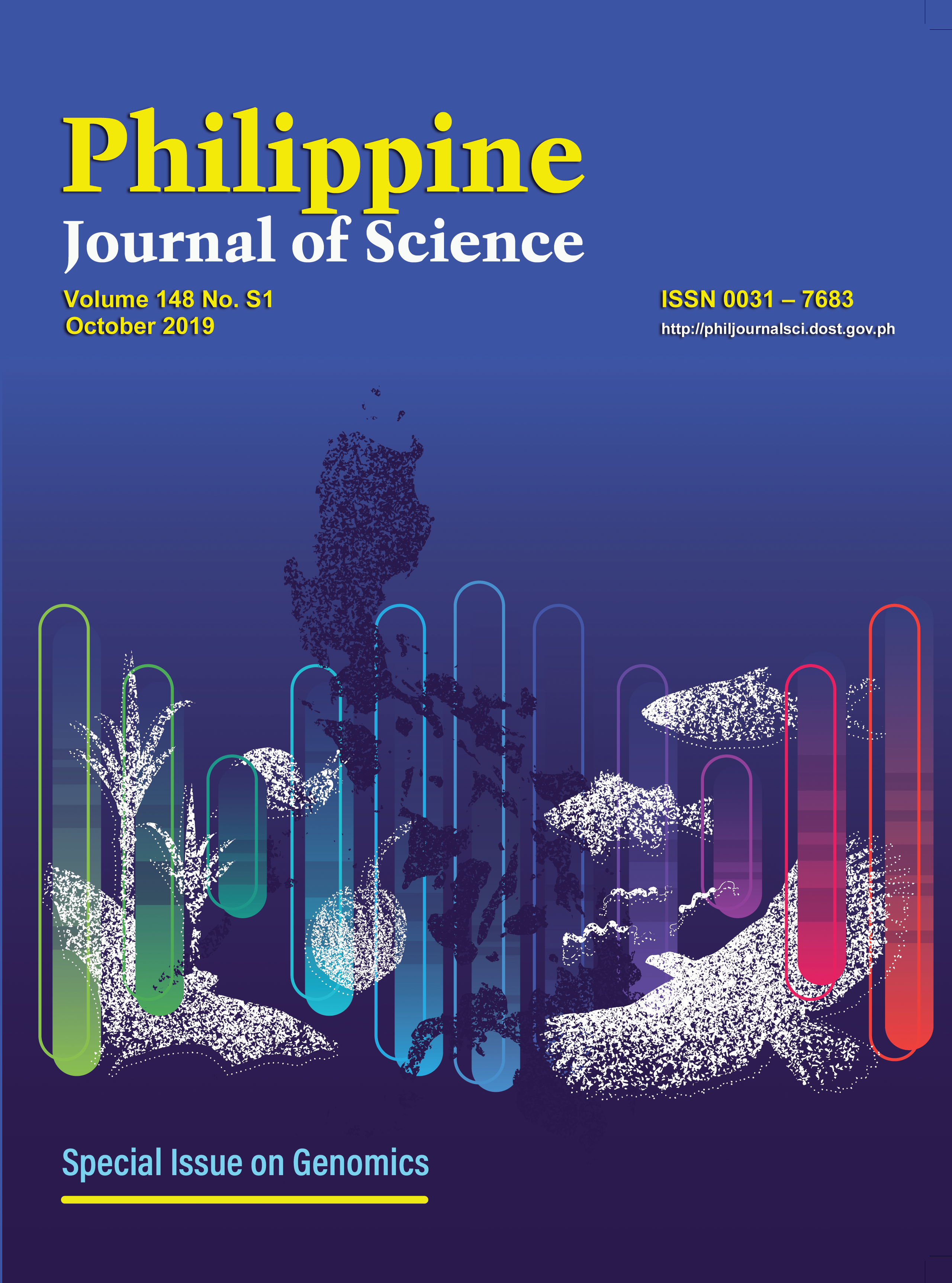This special issue’s cover is accompanied by the different species covered by the studies in this journal.
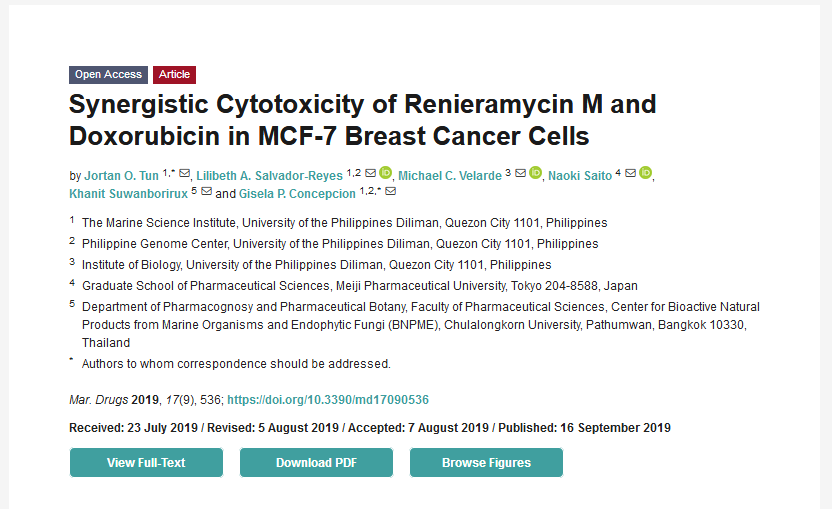
Synergistic Cytotoxicity of Renieramycin M and Doxorubicin in MCF-7 Breast Cancer Cells
Renieramycin M (RM) is a KCN-stabilized tetrahydroisoquinoline purified from the blue sponge Xestospongia sp., with nanomolar IC50s against several cancer cell lines. Our goal is to evaluate its combination effects with doxorubicin (DOX) in estrogen receptor positive MCF-7 breast cancer cells.
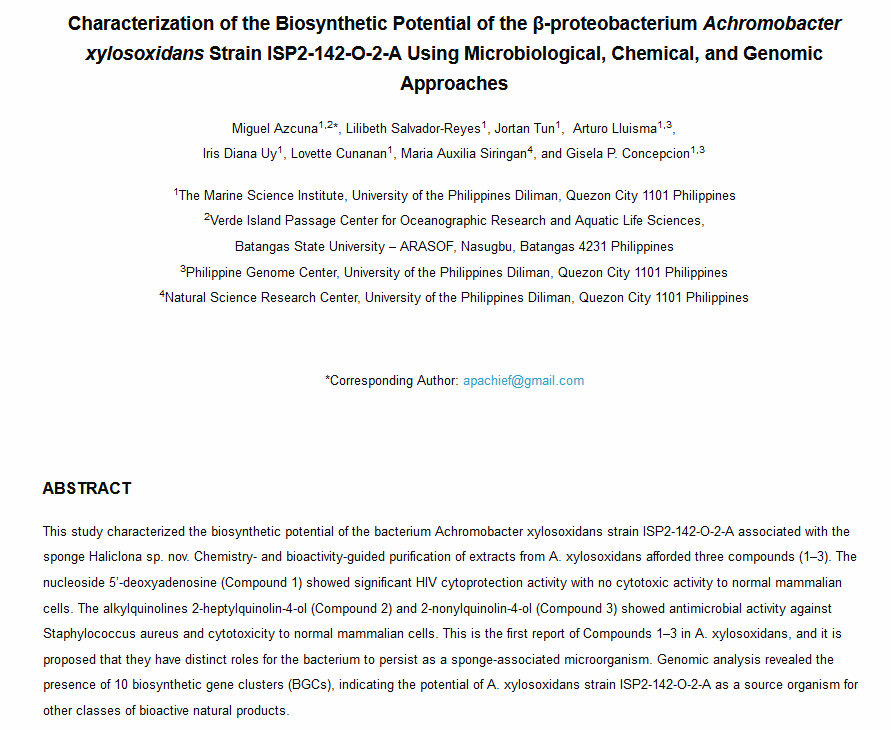
Characterization of the Biosynthetic Potential of the β-proteobacterium Achromobacter xylosoxidans Strain ISP2-142-O-2-A Using Microbiological, Chemical, and Genomic Approaches
This study characterized the biosynthetic potential of the bacterium Achromobacter xylosoxidans strain ISP2-142-O-2-A associated with the sponge Haliclona sp. nov. Chemistry- and bioactivity-guided purification of extracts from A. xylosoxidans afforded three compounds (1–3).
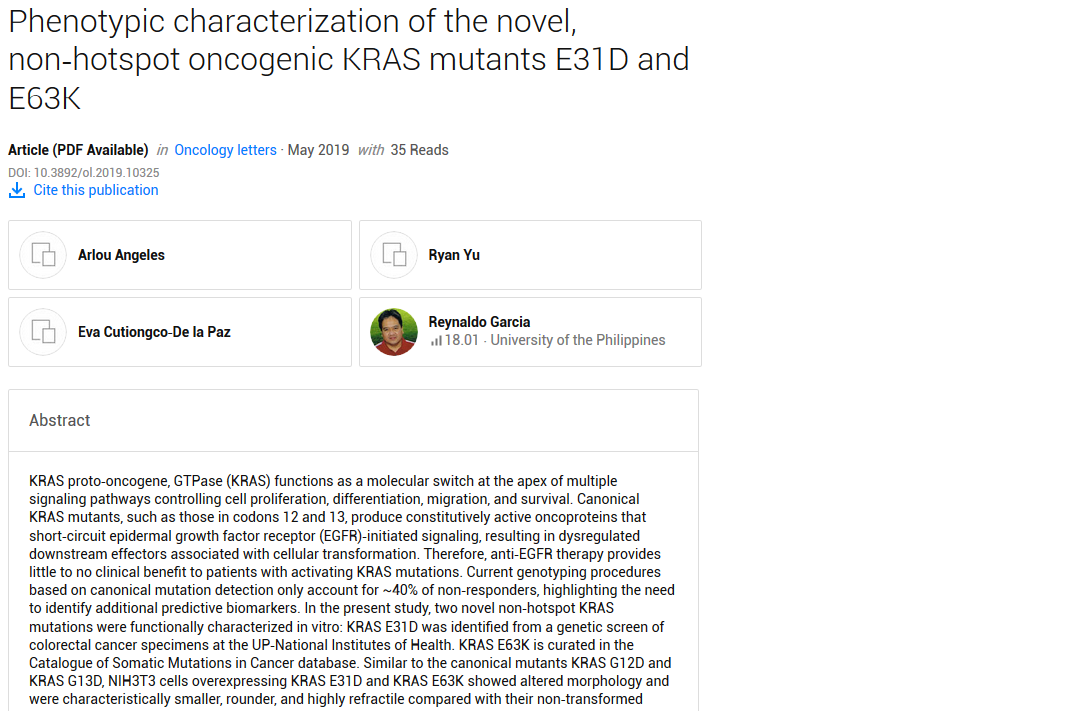
Phenotypic characterization of the novel, non‑hotspot oncogenic KRAS mutants E31D and E63K
KRAS proto‑oncogene, GTPase (KRAS) functions as a molecular switch at the apex of multiple signaling pathways controlling cell proliferation, differentiation, migration, and survival. Canonical KRAS mutants, such as those in codons 12 and 13, produce constitutively active oncoproteins that short‑circuit epidermal growth factor receptor (EGFR)‑initiated signaling, resulting in dysregulated downstream effectors associated with cellular transformation.
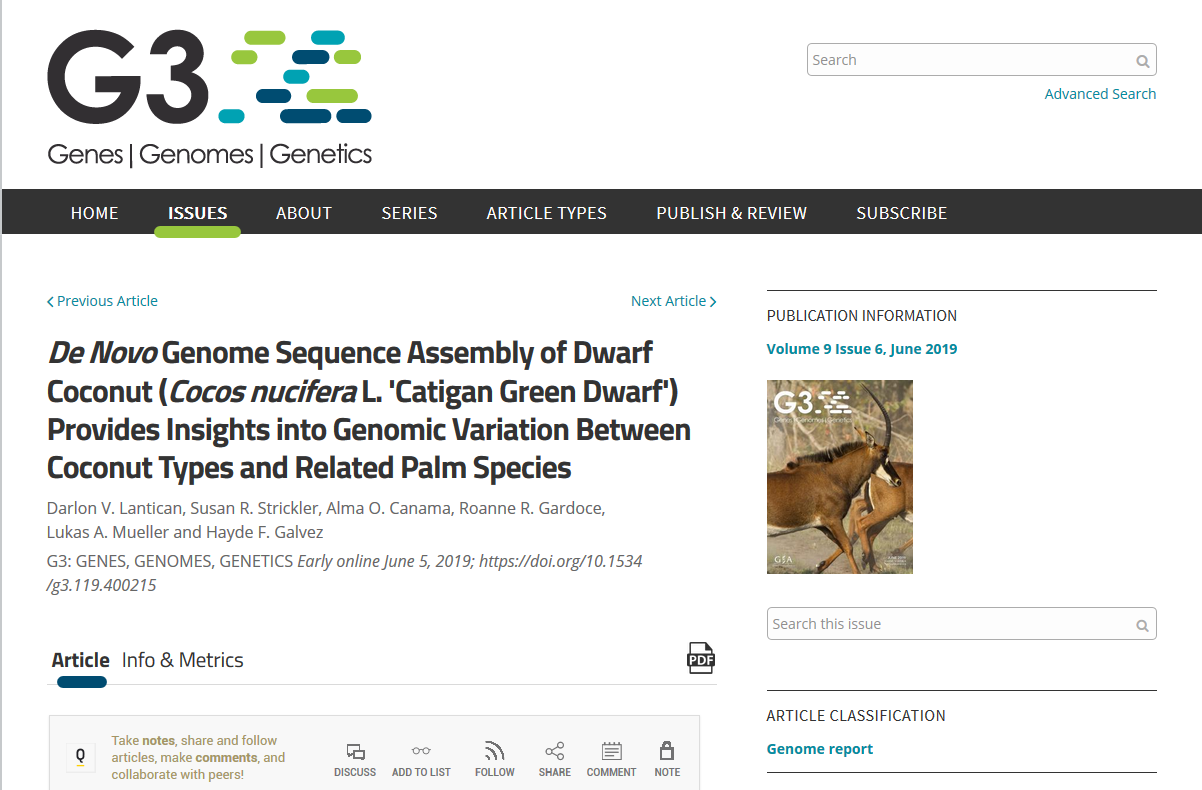
De Novo Genome Sequence Assembly of Dwarf Coconut (Cocos nucifera L. ‘Catigan Green Dwarf’) Provides Insights into Genomic Variation Between Coconut Types and Related Palm Species
A total of 34,958 high-confidence gene models were predicted and functionally associated to various economically important traits, such as pest/disease resistance, drought tolerance, coconut oil biosynthesis, and putative transcription factors.
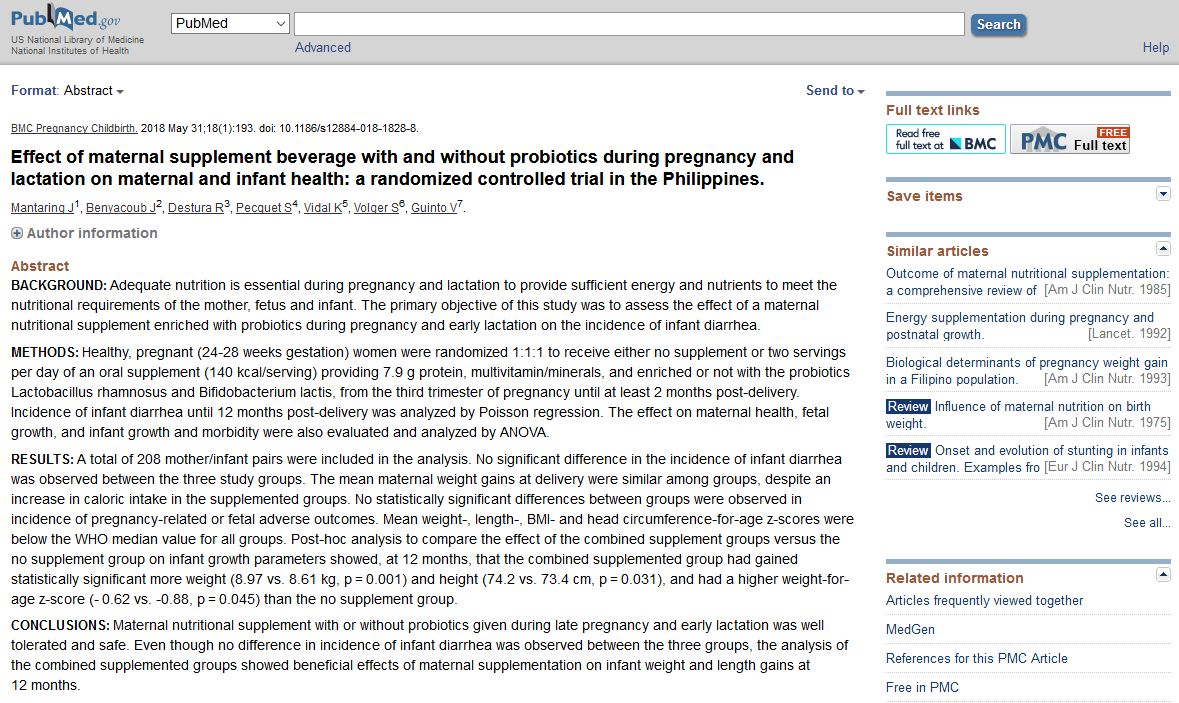
Effect of maternal supplement beverage with and without probiotics during pregnancy and lactation on maternal and infant health: a randomized controlled trial in the Philippines
Adequate nutrition is essential during pregnancy and lactation to provide sufficient energy and nutrients to meet the nutritional requirements of the mother, fetus and infant.

Whole-genome sequencing and single nucleotide polymorphisms in multidrug-resistant clinical isolates of Mycobacterium tuberculosis from the Philippines
Thousands of cases of multidrug-resistant tuberculosis (TB) have been observed in the Philippines, but studies on the Mycobacterium tuberculosis (MTB) genotypes that underlie the observed drug resistance profiles are lacking. This study aimed to analyse the whole genomes of clinical MTB isolates representing various resistance profiles to identify single nucleotide polymorphisms (SNPs) in resistance-associated genes.
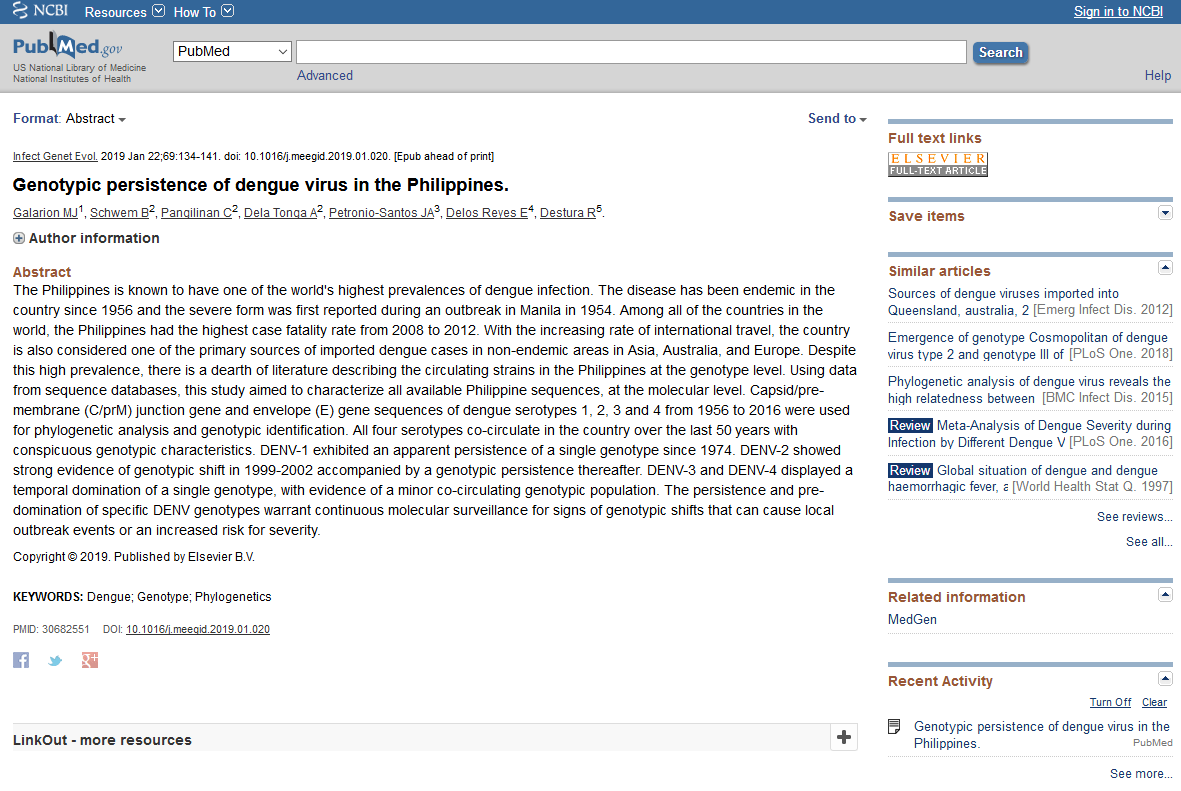
Genotypic persistence of dengue virus in the Philippines
The Philippines is known to have one of the world’s highest prevalences of dengue infection. The disease has been endemic in the country since 1956 and the severe form was first reported during an outbreak in Manila in 1954.
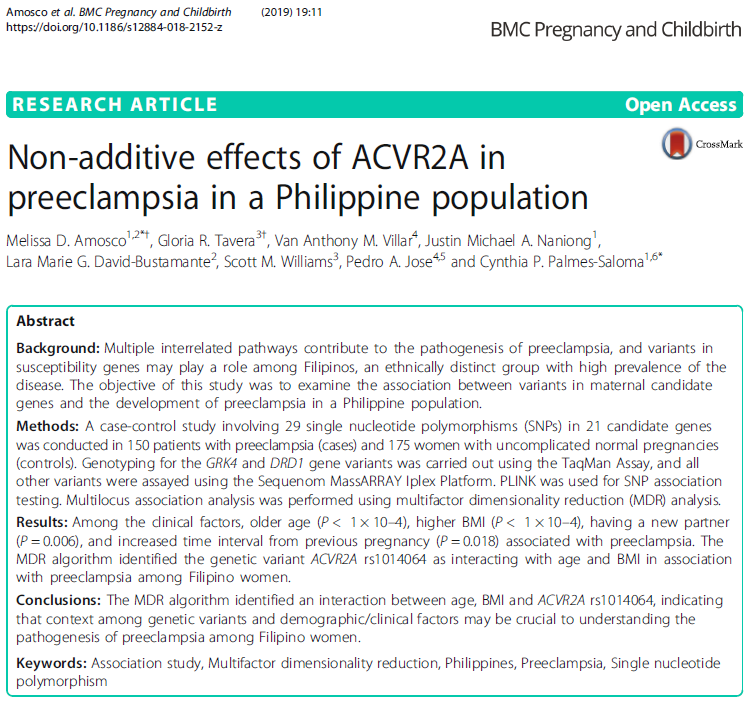
Non-additive effects of ACVR2A in preeclampsia in a Philippine population
Multiple interrelated pathways contribute to the pathogenesis of preeclampsia, and variants in susceptibility genes may play a role among Filipinos, an ethnically distinct group with high prevalence of the disease. The objective of this study was to examine the association between variants in maternal candidate genes and the development of preeclampsia in a Philippine population
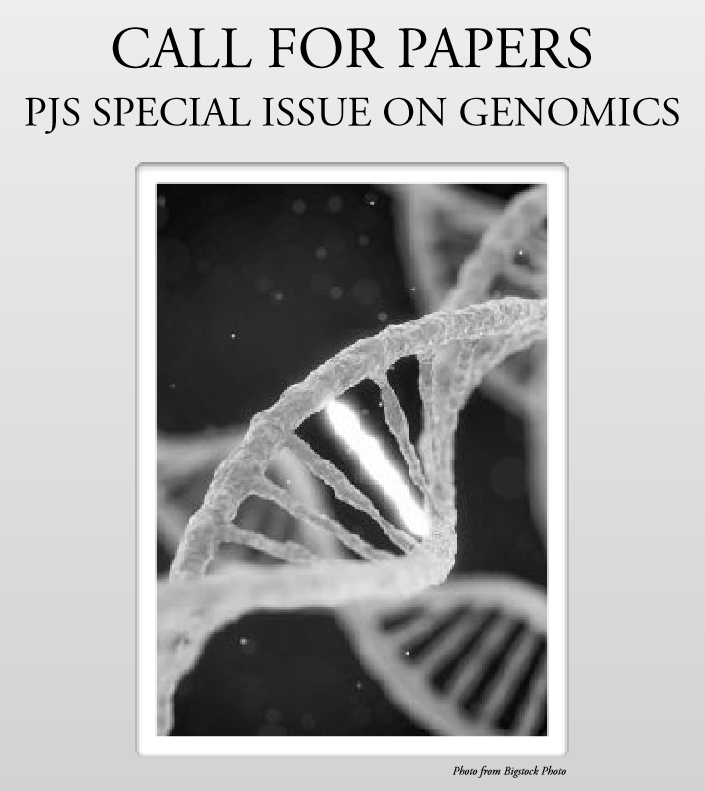
Call for Papers: Philippine Journal of Science Issue on Genomics
The Philippine Journal of Science is now accepting submissions for a special issue on Genomics, dedicated to exploring the application of ‘omics technology and bioinformatics in the country, covering all areas of biological investigation, including but not limited to health, agriculture, biodiversity, ethnicity, and forensics.

